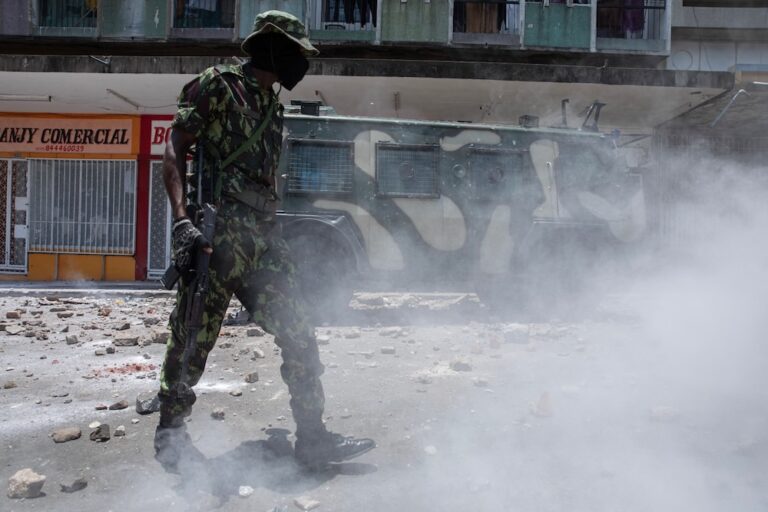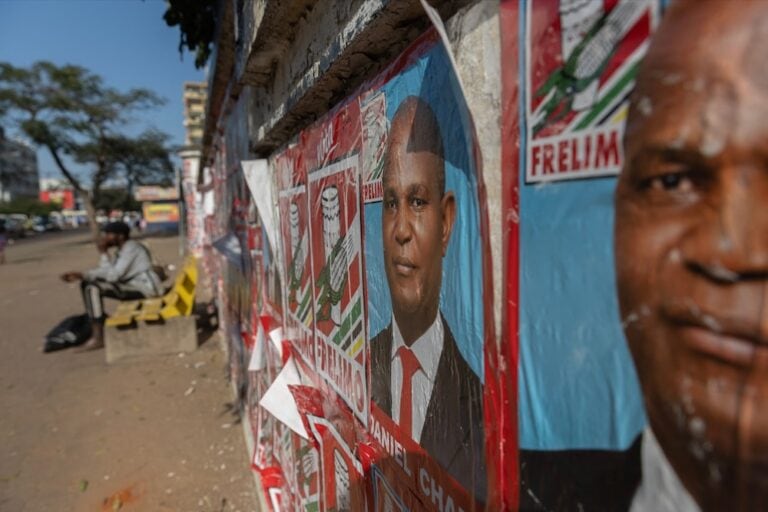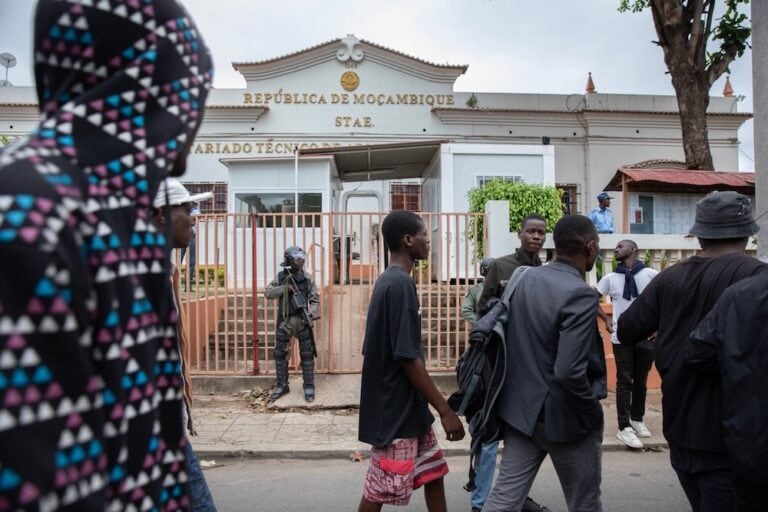(MISA/IFEX) – One of Mozambique’s most prominent journalists, Carlos Cardoso, was shot dead on Wednesday 22 November 2000 in central Maputo by unknown assailants. Cardoso, editor of the independent daily newsheet “Metical”, was gunned down in an ambush on Wednesday 22 November, in the late afternoon, near his office in the Mozambican capital. There are […]
(MISA/IFEX) – One of Mozambique’s most prominent journalists, Carlos Cardoso, was shot dead on Wednesday 22 November 2000 in central Maputo by unknown assailants.
Cardoso, editor of the independent daily newsheet “Metical”, was gunned down in an ambush on Wednesday 22 November, in the late afternoon, near his office in the Mozambican capital. There are no clues as to the assassins’ identities, but the exposures carried in “Metical” may well have earned Cardoso enemies in powerful spheres of the illegal trade.
A crew from Mozambican Television (TVM) arrived on the murder scene soon after the shooting and that night’s main TV news began with the shocking images of the police removing Cardoso’s bullet-ridden body from the car. In the first official reaction to the murder, Prime Minister Pascoal Mocumbi told TVM that he was “deeply shocked” and “profoundly affected” by Cardoso’s death. He praised Cardoso, a former director of the state-owned AIM (Mozambique News Agency) from 1980 to 1989, as “a journalist who has fought tirelessly for freedom of the press.”
Mozambican journalists and politicians alike are deeply shocked by the news of Cardoso’s murder. The dominant feeling was summed up by Hilario Matusse, general secretary of the Mozambican Journalists’ Union, who described the assassination as “an attempt to silence all of us.” “Carlos Cardoso was a person who always spoke his mind,” Matusse said. “But if anyone disagreed with him, he was always willing to sit down and discuss with him.” Adding that the killing was “a blatant attack on press freedom,” Matusse pledged that the union would demand “rapid intervention by the authorities” to track down the assassins and bring them to justice.
Manuel Tome, general secretary of the ruling FRELIOM party, and himself a journalist by profession, said he was “profoundly shocked and profoundly indignant.” “Nobody has the right to silence a voice that was speaking out against the ills of society,” he declared. Tome said that Cardoso “embodied investigative journalism, a journalism based on ethics, a journalism that fought for the country. Carlos Cardoso was a great patriot.” He added that vigorous police action was needed to find the murderers. “Those who committed this crime must be severely punished, he said. “We cannot tolerate crimes of this sort that destabilise society.”


